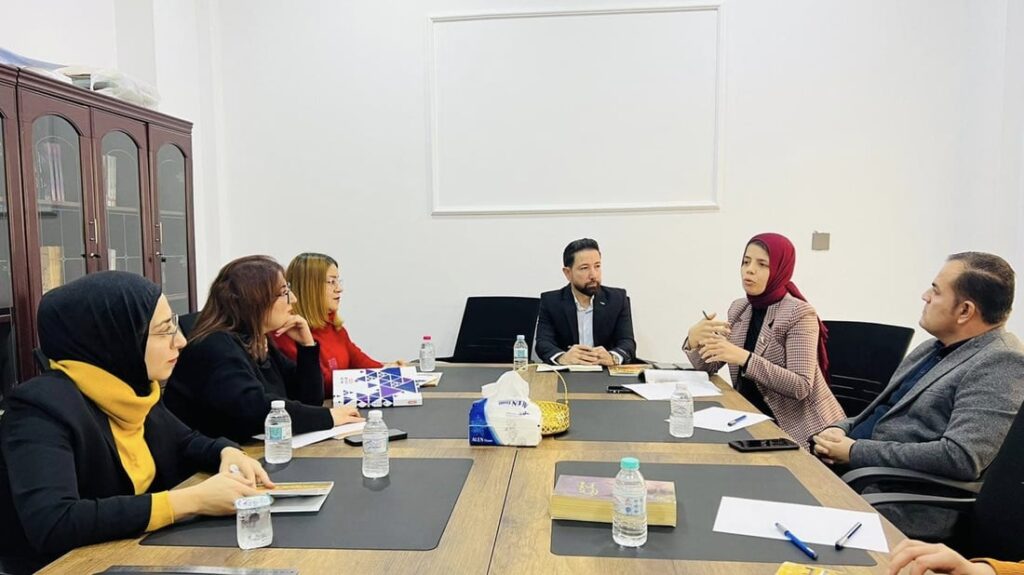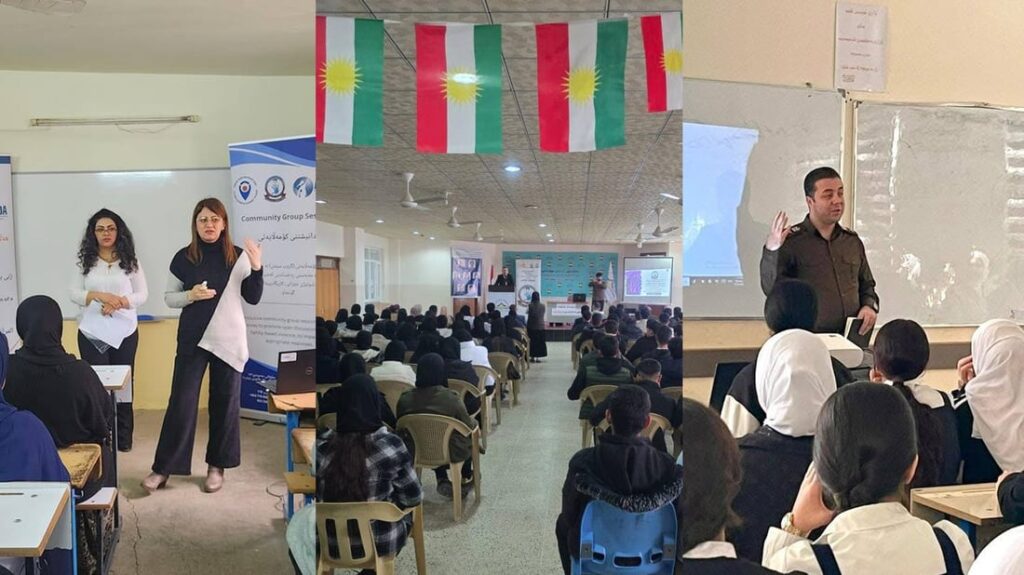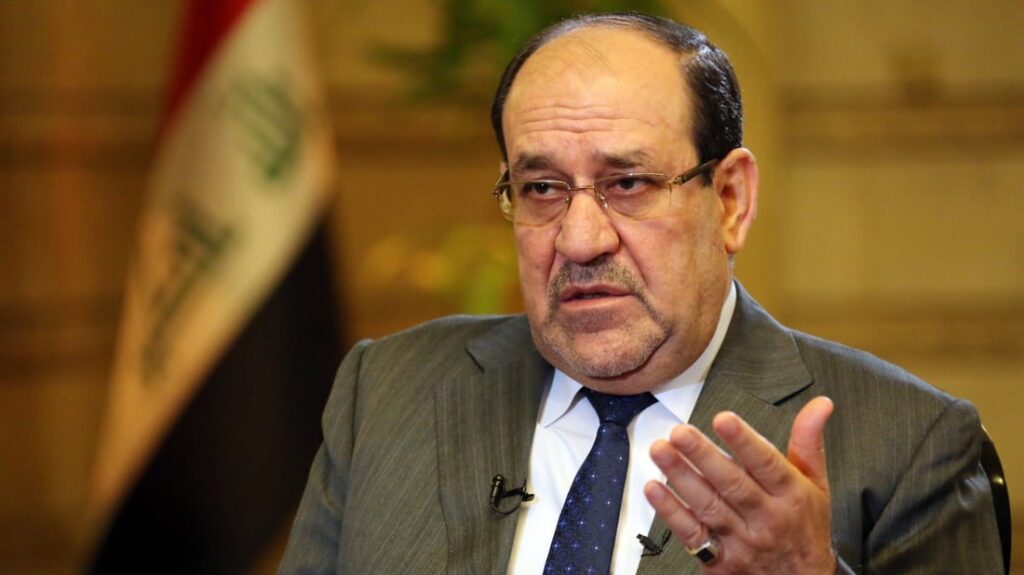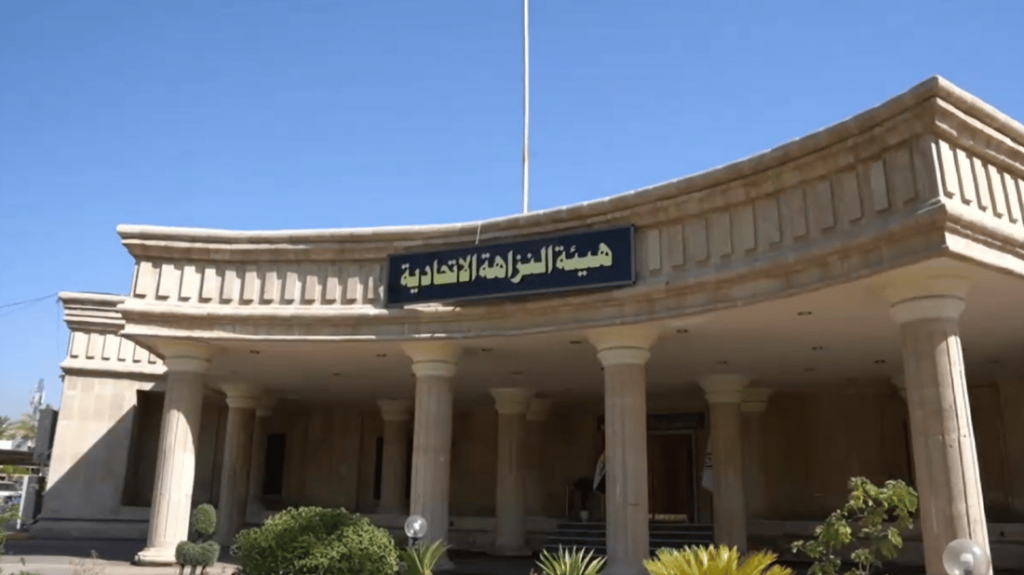The Takeaway: Iran’s exiled Kurdish opposition wants Biden's attention

As protests sparked by the death of Iranian-Kurdish woman Mahsa Amini rage in Iran, members of the country’s exiled Kurdish political opposition say they’re not getting a fair hearing in Washington. Khalid Azizi, spokesperson of the Democratic Party of Iranian Kurdistan (KDPI), is calling on the US government to resume contact with his and other Iranian political parties.
“Unfortunately, we don't have any contact with them,” Azizi told Al-Monitor at a recent event hosted by the Washington Kurdish Institute. “They should have some level of relationship with the Iranian political parties.”
KDPI is one of several Iranian opposition groups based in northern Iraq that is seeking greater autonomy for Iran’s Kurds, who comprise an estimated 10% of the Iranian population. Tehran has accused KDPI and other armed “separatist” groups of organizing the protests, now in their seventh week.
In apparent retaliation, KDPI’s headquarters in the semi-autonomous Kurdistan Region of Iraq came under attack in late September from Iran’s Islamic Revolutionary Guard Corps. The Iranian missile and drone strikes killed eight people, including an American citizen who was a retired peshmerga fighter.
Officials with KDPI and its historic rival Komala say they’re unable to secure meetings with Biden administration officials, despite maintaining offices in Washington and having met with past US administrations. Those engagements ended after then-Secretary of State Mike Pompeo ordered American diplomats in January 2020 to avoid meeting with Iranian opposition groups he accused of trying to gain the appearance of tacit support in Washington.
The Iranian Kurdish opposition has historically been weaker than similar movements in Syria, Iraq and Turkey, which have better funding and organization.
“Even in the diaspora, where you have the opportunity to organize and mobilize, they were not able to muster transnational support the way that others did,” said Denise Natali, author of “The Kurds and the State” and director of the National Defense University’s Institute for National Strategic Studies.
Asked whether the State Department has met with the exiled Kurdish opposition parties amid the protests, a department spokesperson told Al-Monitor, “we’re not going to detail or comment on any engagement with any outside groups ... However, it is clear that these popular protests have nothing to do with outside groups.”
The administration has gone out of its way to avoid characterizing the protesters’ demands, despite many openly calling for the Iranian government’s toppling. It’s even less likely the administration would show any hint of support for political actors espousing regime change or greater autonomy for Iran’s minorities, observers say.
But Azizi maintains that talking to his and other Kurdish groups would offer the United States a different point of view.
“The United States must have some sort of relationship with the Iranian people,” Azizi said. “And it should be done through these political parties.”
To get The Takeaway in your inbox every week, subscribe here.
Scoop: Lawmakers raise Egypt concerns before COP27
As we first reported, dozens of Democratic lawmakers urged President Joe Biden on Wednesday to push the Egyptian government to release political prisoners and environmental activists ahead of the COP27 climate conference next week. Biden and his climate envoy, John Kerry, will attend the summit in the Red Sea resort town of Sharm el-Sheikh, which begins Nov. 6.
“With the world’s attention on Sharm el-Sheikh this month, COP27 presents a unique opportunity for the United States to press the Egyptian government to release these activists and demonstrate its commitment to inclusive engagement with the full range of stakeholders on climate solutions,” read the letter to Biden led by Senators Chris Murphy (D-Conn.) and Jeff Merkley (D-Ore.) and Reps. David Cicilline (D-R.I.) and Bill Keating (D-Mass.).
Read my full story here.
US-Saudi spat doesn't derail Yemen diplomacy
US Special Envoy for Yemen Tim Lenderking is traveling to Saudi Arabia this week in an effort to renew the war-torn country’s truce that broke down last month, Al-Monitor has learned. Lenderking’s trip, which also includes a stop in the United Arab Emirates, comes as ties between Washington and Riyadh remain strained over OPEC+’s decision last month to significantly slash its oil output.
Lenderking appears to be the among the most senior US officials to have visited the kingdom since the steep production cuts were announced. He also traveled to Saudi Arabia last month.
A State Department spokesperson said the strategic partnership with Saudi Arabia “encompasses a multiplicity of interests,” including Yemen. The spokesperson said Yemen’s current period of relative calm is owed in part to “strong diplomatic efforts" with partners including Riyadh.
Yemen’s fragile truce collapsed in early October over last-minute Houthi demands. In remarks at a National Council on U.S.-Arab Relations conference Wednesday, Lenderking urged the rebels to “accept that the only path forward” to ending Yemen’s war is through a negotiated political settlement.
What Bibi's return means for Biden
Former Israeli Prime Minister Benjamin Netanyahu is poised to return to power following the country’s fifth election in less than four years. It’s no secret the Biden administration would have preferred a victory for Yair Lapid’s camp.
As our own Ben Caspit put it, the election outcome is “clearly very bad news for the American administration. ... This government will be exactly the total negative of the liberal values of the Democratic Party in the United States.”
One issue to watch: the future of the US Consulate in Jerusalem, which remains closed despite Biden’s campaign promise to reopen the de facto US embassy to the Palestinians.
“They let [former Prime Minister Naftali] Bennett and then Lapid have this achievement,” Caspit said. “The chances of opening such a consulate are better now because the Biden administration will have an ambition to hurt Netanyahu.”
Have a question for Caspit? Ask him during tomorrow’s Al-Monitor PRO webinar at 10am EST. You can register here.
US eyes Bahrain election conditions
As Bahrain prepares for its third round of elections since 2011, lawmakers including Rep. James McGovern (D-Mass.) are urging the Biden administration not to lend legitimacy an electoral process that Freedom House has labeled "not fair."
“What the administration should not do after Nov. 12 is congratulate the Bahraini government for holding elections, when those elections will not have been free and fair,” McGovern said Tuesday at a Tom Lantos Human Rights Commission briefing I moderated.
A State Department official told Al-Monitor that the administration regularly raises such issues with Manama, “including religious freedom and inclusion for all, concerns over the treatment of detainees and convicts, fair trial guarantees, and the need for transparency and accountability in legal proceedings.”
MENA leader traffic report:
• Nov. 1-2. Egyptian President Abdel Fattah Al-Sisi, Lebanese Prime Minister-designate Najib Mikati and Qatari Emir Sheikh Tamim bin Hamad Al Thani are among the world leaders who attended the Arab League summit in Algeria. US Deputy Assistant Secretary Yael Lempert and Ambassador Elizabeth Aubin represented the United States. Notable absences included Moroccan King Mohammed VI, Jordanian King Abdullah II and Saudi Crown Prince Mohammed bin Salman.
• Nov. 3-6. Pope Francis will visit Bahrain, which is home to some 80,000 Catholics, and will meet with King Hamad bin Isa Al Khalifa.
• Nov 4. NATO Secretary General Jens Stoltenberg will visit Ankara for talks on Nordic enlargement.
• Nov. 7-9. Omani Foreign Minister Sayyid Badr al-Busaidi will visit Washington for meetings with US officials, Al-Monitor has learned. The trip is his first to DC as Oman’s chief diplomat.
• Nov. 8. Sweden’s Prime Minister Ulf Kristersson and Foreign Minister Tobias Billstrom will meet with Turkish President Recep Tayyip Erdogan in Turkey for NATO talks.
What we're reading:
• Mazal Mualem has this post-mortem on Lapid’s campaign and why it failed to unite Israel’s center-left.
• Elizia Volkmann explains that an IMF loan is unlikely to save Tunisia's economy.
• Iran sees Iraqi Shiite cleric Muqtada al-Sadr as an ally worth keeping despite his harsh criticism of Iran and its allies, writes Ali Mousawi Khalkhali.
• Water scarcity in North Africa will continue to be a short-term trigger of social unrest and a medium-term threat to business and political stability, Francisco Serrano explains in his latest PRO memo. (PRO subscribers only)




